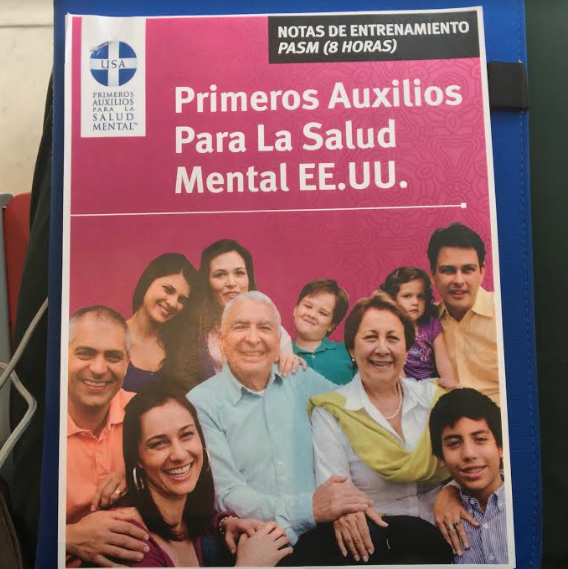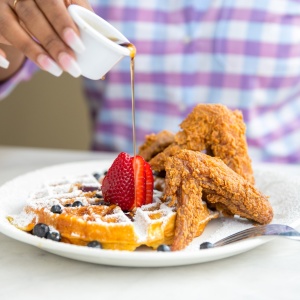Following in the footsteps of author Olivia A. Cole’s brilliant Women of Wednesday series, our own ongoing “An Extraordinary Impact” features people of color responsible for creating an extraordinary impact within their communities. By providing them with a platform to share their accomplishments, goals, and message, we hope to not only celebrate their achievements, but to galvanize support for their endeavors.
Alice Wong, San Francisco
1. So what is it you’re doing and why are you so passionate about it?
I created the Disability Visibility Project™ (DVP) about three years ago because I didn't see enough stories or histories about disabled people. Like many marginalized groups, much of our history is untold, forgotten, or erased. When stories about disabled people are told in the media or by historians, it's often from a non-disabled lens.
The DVP is a community partnership with StoryCorps, a national oral history non-profit that records the stories of all people, not just the famous and infamous. What's great about StoryCorps is that it's free and participants have the option of having their recording archived at the Library of Congress. Imagine being able to tell your story in your own words and having it preserved for the future. I find that incredibly powerful and exciting.
I interview folks in my San Francisco Bay Area disability community about their lives and what matter to them. I encourage disabled folks around the country to go to a StoryCorps location to record their stories as well. I'm passionate about this project because it gives people an opportunity to share a moment, create something, and add to a larger body of history that is open to the public.
In telling our stories, we're claiming our identities and taking pride as a community--this is the driving force behind what I do.
(Quilt by Corbett O'Toole)
2. What made you decide to pursue doing this work?
Originally, the Disability Visibility Project™ was a one-year project. I thought I'd see who I could interview by using my networks on social media. My background is in qualitative research so I always loved interviewing people and learning from them. Pretty soon, the DVP became my life's work and I decided to focus on it full-time a few months ago.
I realized there was a need and hunger for stories by and for disabled people. The positive responses encouraged me to broaden the DVP into an online community. I publish blog posts featuring the interviews from the DVP and use Twitter and Facebook to disseminate them.
Since I enjoy using social media and sharing information, the online component has been equally important as my partnership with StoryCorps. Building online spaces where we can share our stories plus have conversations is an extension of what I've been doing informally as an individual.
I also host Twitter chats and partner with other people who are disabled activists. For example, I am a co-partner in #CripTheVote, a nonpartisan online movement encouraging the political participation of disabled people. I love working with different people in the disability community and collaborating with so many talented and amazing folks.
The work I do now is a culmination of my skills and passions--it's weird how my journey in life has led me to this place! Whenever I think about it, I'm filled with a deep sense of gratitude.
3. Who have been some of your biggest influences and inspirations?
There are a lot of media makers and online communities that influence me. Jamie Broadnax's Black Girl Nerds and Keith Chow's The Nerds of Color are fantastic nerd-driven communities that give me life. I love live tweeting with them and appreciate how they consistently push back against the status quo in entertainment and media.
Many disabled women have mentored and supported me over the years--I try to do the same and amplify the work of disabled writers, artists, and activists, especially disabled people of color. Three particular shout-outs I'd like to give are TL Lewis, Vilissa Thompson, and Keah Brown. If you're on Twitter, follow them! All three are activists and writers who cover issues of race, disability, culture, structural inequality, and intersectionality.
4. What would it take for you to consider this endeavor a success?
I like the current pace and direction of the DVP and in many ways it's already a success. The DVP has over 100 oral histories recorded so far and I'm in the process of putting them online so anyone can access them.
Two DVP oral histories were selected for broadcast on National Public Radio so that's something! Anytime non-stereotypical stories by disabled are out in the mainstream is always a good thing. Here's the most recent one from this past Mother's Day featuring Sarah Churchill and her daughter Yomi Wrong. You can also hear my interview with Yomi from 2015.
Right now this is a one-person production--I'd like the project to grow but I don't want to change based on other people's ideas of what success looks like.
5. How can interested parties support what you’re doing?
Thanks for asking this question. First, folks can go to my website and check it out. Everyone's welcome to join the DVP Facebook group where a lot of conversations happen about disability culture and issues. For people who use Twitter, they can follow me @SFdirewolf and @DisVisibility.
I launched a Patreon campaign a few months ago--if people appreciate my work, they're welcome to support it for $1/month or more. This will allow me to pay disabled people to create authentic media and help get their stories out there.
One final recommendation for your readers is to amplify the work by disabled people, especially stories they love.
Donate on Patreon: https://www.patreon.com/DVP
Website: http://disabilityvisibilityproject.com/
Facebook: https://www.facebook.com/groups/356870067786565/
Are you making “An Extraordinary Impact” on your community and want to be featured in a future installment? Shoot us an email with your answers to the above questions to theextraordinarynegroes@gmail.com.












